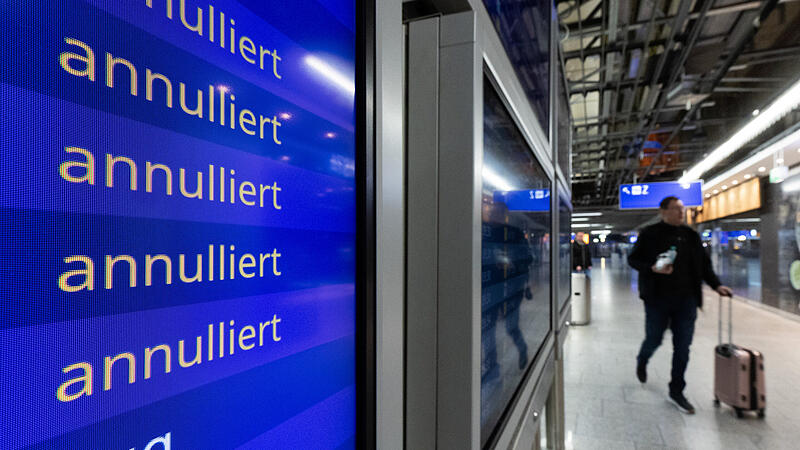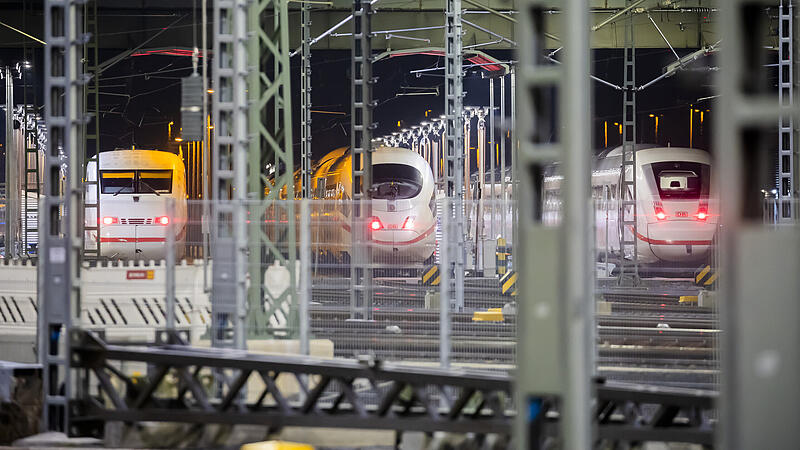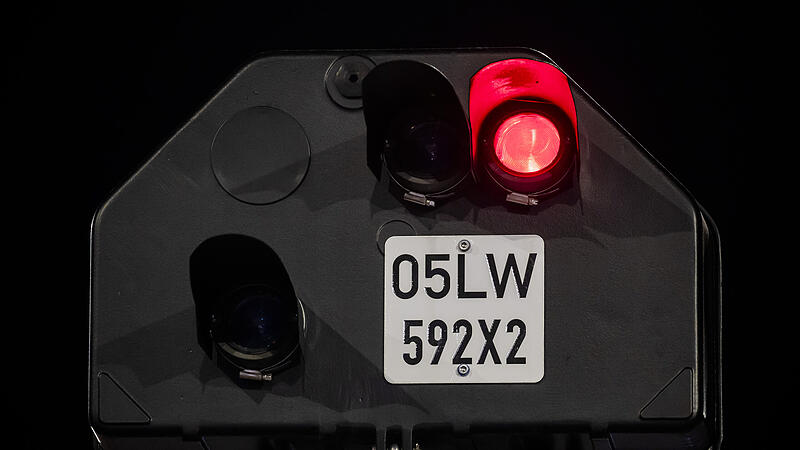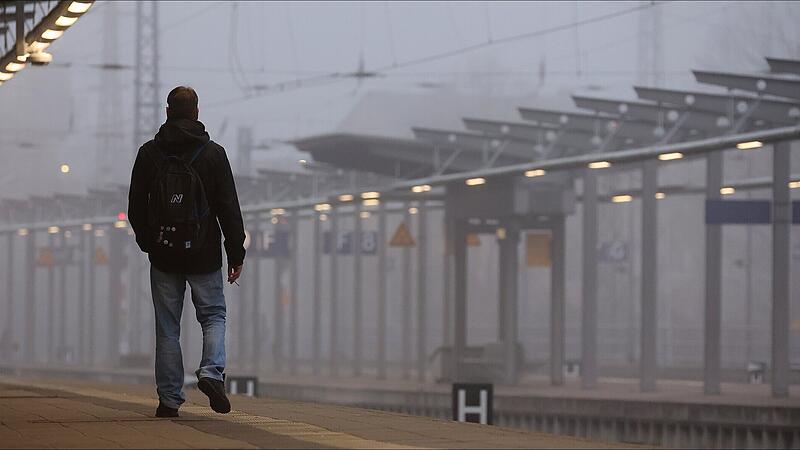Image: Bernd WŸstneck (dpa)

Image: Lando Hass (dpa)

Image: Christoph Soeder (dpa)

Image: Christoph Soeder (dpa)
In Frankfurt and Munich, passengers had to reschedule due to a two-day strike by the UFO cabin union at Lufthansa.
- These are the effects on Austria: Rail strike: Numerous train cancellations in Austria
The two unions had not coordinated. Nevertheless, it was the second time within a few days that there were strikes at both Lufthansa and Deutsche Bahn.
After the ground staff strikes organized by Verdi last week, flight attendants from Lufthansa and the regional subsidiary Cityline in Frankfurt went on strike on Tuesday. From 4 a.m. to 11 p.m. there should be a strike on all Lufthansa departures at Germany’s largest airport. The company assumed that 600 flights in Frankfurt would be canceled. 70,000 passengers were affected.
- More on the subject: Millions of passengers affected: strikes paralyze rail and parts of air traffic in Germany
UFO has called on Lufthansa cabin crew in Munich to go on strike on Wednesday from 4 a.m. to 11 p.m. According to Lufthansa’s estimates, 400 flights with 50,000 passengers will not be able to take off there.

Image: Lando Hass (dpa)
A GDL strike at the railway ended on Friday. Late on Sunday evening, the union called for another industrial action. It began on Monday evening in the group’s freight transport. The restrictions not only affect passengers, but also industrial customers of the rail subsidiary DB Cargo.
“Economic location heavily burdened”
These include in particular the chemical and automotive industries. “Such actions will place a further heavy burden on Germany, which is already ailing as a business location. We simply can’t afford any more standstill on the railways,” said the general manager of the chemical association VCI, Wolfgang Große Entrup, to the German Press Agency on Monday.
- Also read: Tour operators want compensation from Lufthansa (OÖNplus)
The unions’ actions are not only met with criticism. For Thorsten Schulten, head of the WSI collective bargaining archive of the union-affiliated Hans Böckler Foundation, they are more an expression of “a new self-confidence among employees,” as he told the dpa. This particularly applies to areas in which there is or is foreseeable a severe shortage of skilled workers. “This dynamic naturally puts employers under pressure. But it also helps to make work in important sectors more attractive – and thus alleviate the labor shortage in the long term.” In his own words, Schulten does not expect Germany to become a permanent strike country.
The trade fair industry also criticized the GDL strike on Tuesday as disproportionate. “It is no longer understandable why millions of employees, business travelers and trade fair participants have to bear the burden of the conflict between DB and GDL that has been simmering for years.” Germany’s reputation as the most important trade fair destination in the world is being tarnished.

Image: Christoph Soeder (dpa)
Bahn tried to stop the strike
The railway tried to stop the strike on Monday evening with an application for an interim injunction at the Frankfurt labor court and failed. The appeal on Tuesday before the Hesse State Labor Court was also unsuccessful. The instrument of the GDL’s so-called wave strike as a pinprick tactic is permissible, said the presiding judge Michael Horcher. The court still considered a notice period of 22 hours for freight traffic and 30 hours for passenger traffic to be appropriate. He suggested going to formal arbitration.
- About the background: German unions are shutting down Germany
The GDL had previously rejected this. In court on Tuesday, GDL representative Thomas Schelling described such a measure as “entirely debatable”. We will discuss this openly. “It is time for DB to finally negotiate properly.”
Railway representative Florian Weh said that formal arbitration was now the appropriate method of choice. “We are ready to do this without any preconditions.”
External mediators were already involved in the most recent round of negotiations, but it was not a formal arbitration. The talks failed again due to the dispute over the 35-hour week required by the GDL for shift workers. Meanwhile, people continue to talk to each other in air transport. Negotiations with Verdi for the approximately 25,000 employees on the ground are scheduled to continue on Wednesday and Thursday. Verdi charges 12.5 percent more money for a term of one year, while the company offered 10 percent for a term of 28 months.

Image: Christoph Soeder (dpa)
The UFO union, in turn, is demanding 15 percent more money for the approximately 18,000 cabin employees at Lufthansa and the almost 1,000 employees at Cityline – with a contract term of one and a half years. According to its own information, Lufthansa has offered an increase in tariff salaries of 6 percent for August 2024 and a further 3.25 percent for August 2025 over a period of two years. In addition, cabin employees should receive an inflation compensation bonus of 3,000 euros in April 2024.
Criticism of Lufthansa
The actions at Lufthansa have met with criticism. “I also understand our employees, the colleagues in the cabin are doing a great job, no question about it. But the strike is the wrong approach,” said Human Resources Director Michael Niggemann. “Strike does not bring a solution. Solutions can only be found at the collective bargaining table.” Lufthansa has some of the best conditions in the industry. This is also shown by the large number of applications.
What will happen next on the rails is unclear. The GDL also wants to announce future strikes with significantly less advance notice than before. Passengers can then only hope that the railway can continue to organize a basic long-distance service in a timely manner.
more from economics




